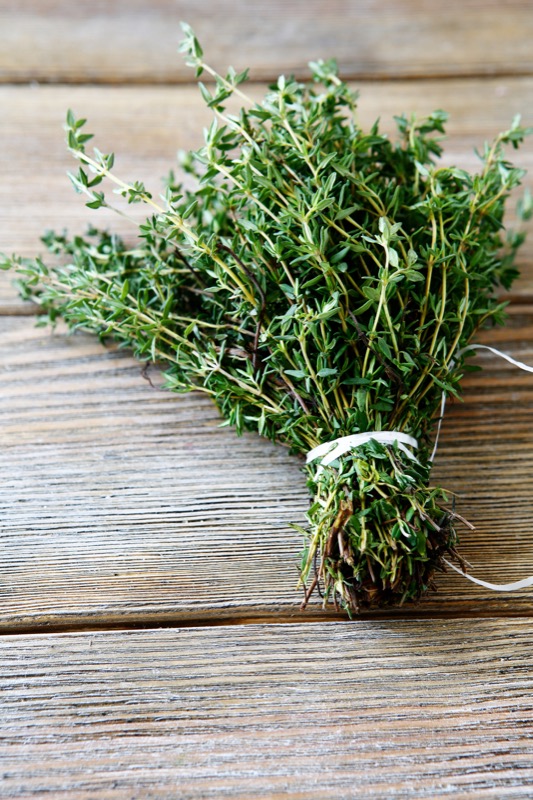Our Boxes
| Vegetables
| Fruit
| Salad
| Drinks
| Meats
| Fish
| Dairy
| Cheese
Bakery | Herbs | Other Bits | Snacks | Seasonings | Oils
Bakery | Herbs | Other Bits | Snacks | Seasonings | Oils
Thyme (100g)

Common thyme, Thymus vulgaris, is used as culinary herbs or for medicinal purposes. Ancient Egyptians used thyme in embalming. The ancient Greeks used it in their baths and burnt it as incense in their temples, believing that thyme was a source of courage. It was thought that the spread of thyme throughout Europe was thanks to the Romans, as they used it to purify their rooms and to give an aromatic flavour to cheese and liqueurs. In the European Middle Ages, the herb was placed beneath pillows to aid sleep and ward off nightmares.Thyme is a good source of iron and is used widely in cooking. Thyme is a basic ingredient in French, Greek, Italian, Lebanese, Persian, Portuguese, Libyan, Spanish, Syrian, and Turkish cuisines, and in those derived from them. It is also widely used in Arab and Caribbean cuisines. Thyme is often used to flavour meats, soups and stews. It has a particular affinity to and is often used as a primary flavour with lamb, tomatoes and eggs. As with bay, thyme is slow to release its flavours so it is usually added early in the cooking process.
Nutrition:
A tea made by infusing the herb in water can be used for cough and bronchitis. The essential oil of common thyme (Thymus vulgaris) is made up of 20-55% thymol... Thymol, an antiseptic, is the main active ingredient in Listerine mouthwash. Also, before the advent of modern antibiotics thyme was used to medicate bandages.
Storage:
The fresh herb can be kept for a short time in plastic bags in the refrigerator, or for a longer period in the freezer, after being blanched quickly in boiling water.
Source:
English orchards whenever possible, though will also on occasion use Bristol Markets and EU-derived (land-freight) sources in order to meet times of high demand.


